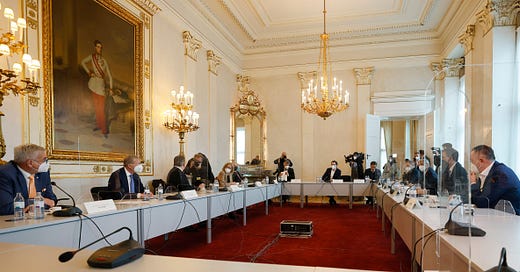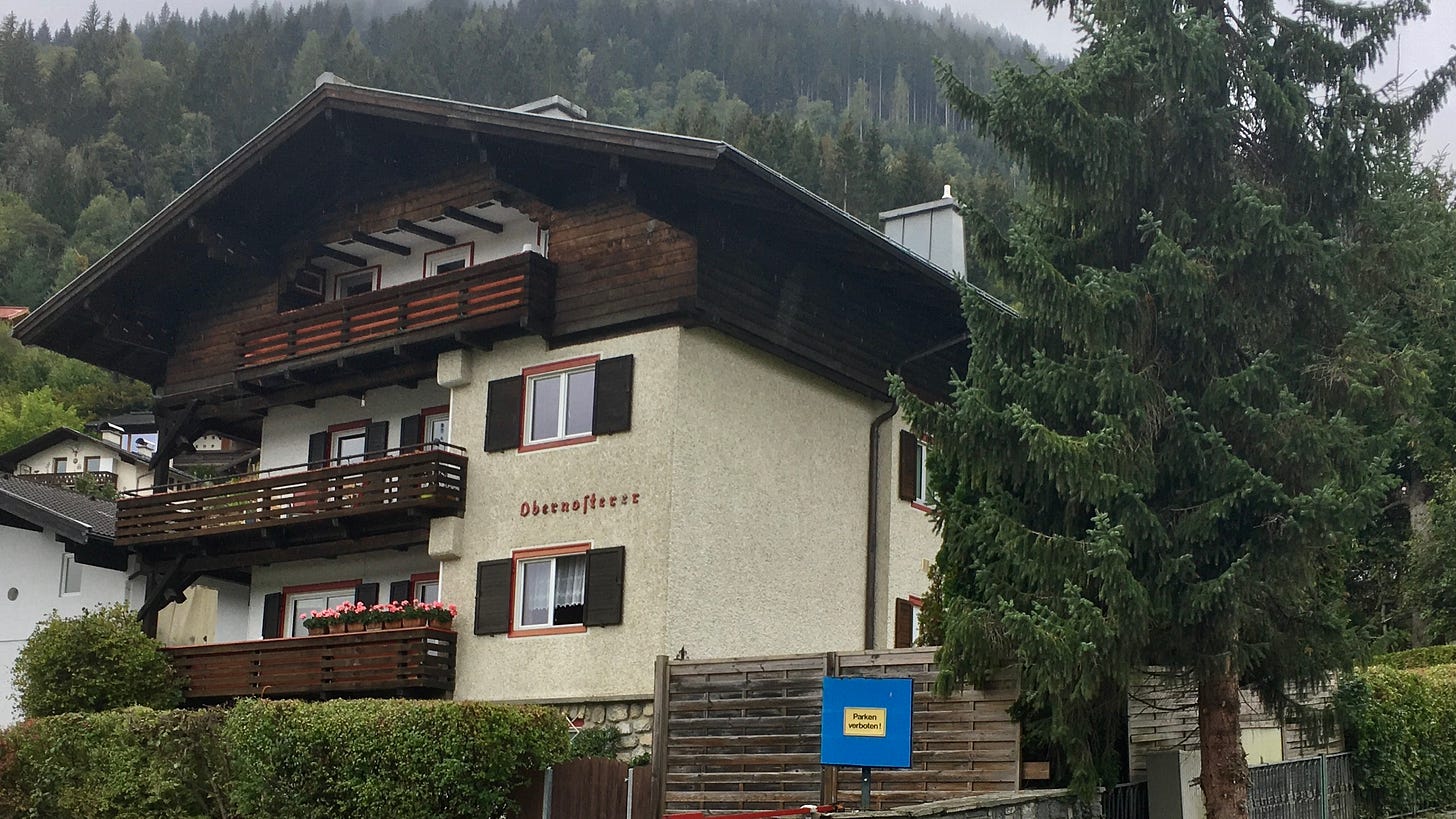Decisions, Decisions
Monday's coronavirus summit came to nothing due to the states' resistance to any lockdown-adjacent measures designed to stop the spread of the coronavirus

Servus!
Another Monday, another coronavirus summit. Government ministers convened in the morning, first meeting with an independent panel of experts—epidemiologists, virologists, and the like, to take their advice. At 11.30 came a video conference with opposition parties whose buy-in may be needed to pass certain amendments to Austria’s laws governing epidemics that require a two-thirds majority in parliament. And at 13.00 came what was perhaps the most important meeting of all: a roundtable with the governors of Austria’s nine states: 8 of them attending in person, with Tyrol’s governor Günther Platter calling it from the state capital, Innsbruck.
The backdrop for this series of crisis meetings was the steadily-rising number of coronavirus cases in Austria and the much-discussed slow and troubled rollout of the vaccine. As of midnight on March 22, almost 1 million people had received the first dose of any coronavirus vaccine in Austria—almost 13 percent of the over-16s eligible for the jab. But there are now 45,931 active coronavirus cases in the country and the seven-day incidence rate stands at 240.4 cases per 100,000 people. The fact that intensive care beds reserved for coronavirus patients are reaching capacity in Lower Austria, Burgenland, and Vienna—where elective surgeries are being moved to church-run or private hospitals or cancelled altogether—gave the summit an especial sense of urgency.
If the opposition is needed to pass certain coronavirus-related legislation, the endorsement of the states is needed in order to enforce it. Although Austria has a relatively weak federal model compared with Germany or the United States, states and the Conference of Provincial Governors as a body continue to wield a fair amount of power and influence, and ultimately, it is the states who are responsible for administrating laws passed by the federal government. Certain powers reserved for the states like matters of tourism and public events as well as kindergartens and day-care centers also matter during a global pandemic.
Were it up to health minister Rudolf Anschober, one can be pretty sure Austria would be strengthening its anti-coronavirus measures right now, moving in the direction of a fourth lockdown at or after the Easter holidays. Consider that there are currently 165 coronavirus patients in intensive care in Vienna. By the end of March, that number is projected to reach 200. It doesn’t take much imagination to see where the case numbers go from there and envision the ambulances lined up in the street outside Vienna’s hospitals waiting for beds and ventilators to become available.
But neither chancellor Sebastian Kurz nor the governors from east to west and left to right seem to have much interest in another lockdown—especially when it is not clear if the population would comply. It would also be expensive for one thing, and the federal government’s appetite for another round of bailouts for shuttered small businesses is minimal. Shops, in any case, do not appear to be a vector provided customers and employees are wearing masks; the bigger problems are unmasked employees in office-type workspaces. Erecting a giant cordon sanitaire around Vienna is a logistical impossibility. And Kurz, having staked his reputation on re-opening, doesn’t wish to turn back now.
Thus did Monday conclude with an 18.00 press conference at which the so-called ‘decision day’ ended without decision. These press conferences, broadcast live on Austria’s most-watched channel, ORF 2, are usually an opportunity for the chancellor to announce certain changes on coronavirus-related measures, but on Monday, Kurz came before the cameras with no news at all. The future approach to the virus would be more regionalized, he said—and that was all she wrote. Through the night Tuesday into Wednesday, the governors of Vienna, Lower Austria, and Burgenland held talks with representatives of the health ministry to thrash out a future strategy vis-à-vis the virus. The details of those talks are to be revealed this evening. Meanwhile, the case numbers climb ever higher.
Bis bald!
What was David Duke—ex-Klansman and America’s best-known white nationalist—doing living in the picture-postcard Alpine resort town of Zell am See? I address this question and others surrounding Duke’s decades living and building political connections in Europe in the new issue of Moment.
Thank you for subscribing to the Vienna Briefing. Do you know someone who would be interested in receiving this newsletter? Consider sharing it with them today.
Zadić Blocks Ban
The Greens would block any move by the ÖVP to bring in a ban on journalists quoting from the files of ongoing state-led investigations, the justice minister Alma Zadić has said. The ban would undermine a cornerstone of press freedom, the minister added.
Corona-skeptics Arrested
Around 1,500 people took part in corona-skeptic demonstrations in Vienna on Saturday. Police took 11 people into custody and issued 20 criminal charges and around 1,630 administrative ones.
Student Politics
Campaigning for this year’s elections to the Austrian National Union of Students (ÖH) kicked off last week. In-person voting will take place May 18-20. Previously controlled by a left-green coalition, the current ÖH chair is Sabine Hanger from the AktionsGemeinschaft (AG), the faction close to the ÖVP.




